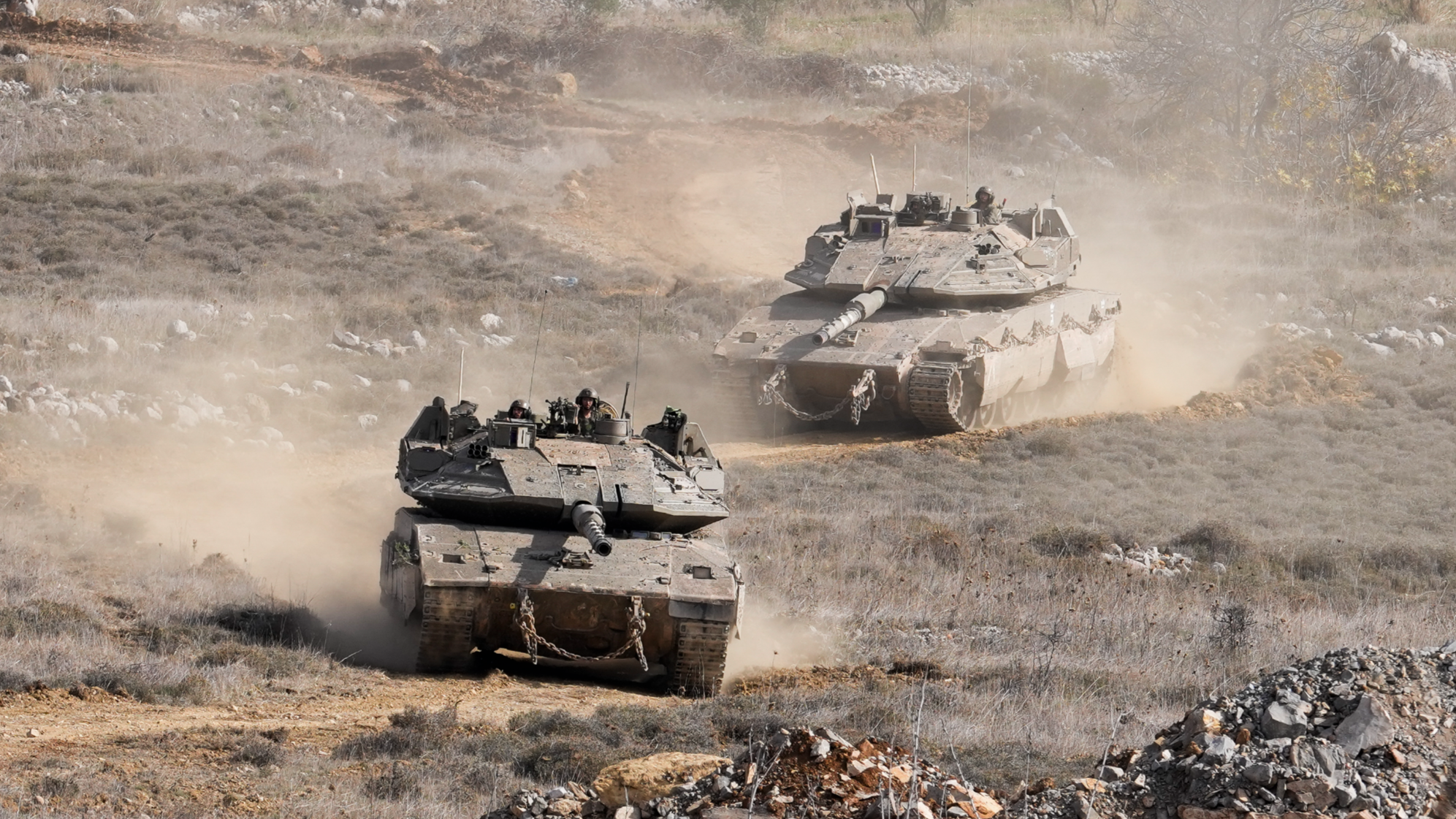
The United Nations rejects any aggression against Syrian sovereignty and violation of its territorial integrity, an official said, as Israel announced that it was establishing a “sterile defense zone” in southern Syria after carrying out more than 450 strikes in 48 hours.
Stephane Dujarric, spokesperson for UN Secretary-General Antonio Guterres, said at a news conference on Dec 10 that Syria’s “turning point” should not be used by its neighbors to encroach upon Syrian territory, and should instead be used by all those in the region to support the Syrian people.
Dujarric said they were very clear about the violation of the 1974 disengagement agreement following the Israeli Defense Forces’ occupation of the buffer zone. In 1967, Israel occupied most of the Golan Heights during the Middle East war and later annexed the territory. This was never recognized by the international community.
READ MORE: Israel claims to have destroyed 'most' of Syria's advanced weapons stockpiles
Geir Pedersen, UN special envoy for Syria, told journalists in Geneva on Dec 10 that the conflict in the northeast of Syria is not over as there have been clashes between the Syrian National Army, the opposition groups and the Syrian Democratic Forces.
“We are calling obviously for calm also in this area,” Pedersen said.
He also said that Israeli troop movements into the Occupied Golan Heights and bombardments “need to stop”.
“I am not in contact with the Israelis, but of course, the United Nations in New York, they are. And, you know, the peacekeepers in the Golan Heights, are in daily contact with the Israelis. And of course, the message from New York is just the same — that what we are seeing is a violation of the disengagement agreement in 1974,” said Pedersen.
In a post on X, the IDF reported striking most of what it claimed as the strategic weapons stockpiles in Syria in 48 hours “to prevent them from falling into the hands of terrorist elements”.
Among the actions were 350-plus aerial strikes. A “wide range of targets” included anti-aircraft batteries, Syrian Air Force airfields, and dozens of alleged weapons production sites in Damascus, Homs, Tartus, Latakia and Palmyra. Syria’s naval operations were also targeted, including the Al-Bayda port and the Latakia port, where 15 docked Syrian naval vessels were hit.
Pedersen said much is still unclear about Hayat Tahrir al-Sham (HTS) — the armed group that led the rebel offensive and wrested control of Syria — and its motivations, and emphasized that Syria is still in a very “fluid” period. There is a real opportunity for change, he said, but this opportunity needs to be grasped by the Syrians themselves and supported by the UN and the international community.
In an interview with CNN, Abu Mohammad al-Jolani, the leader of HTS, said their goal had been to overthrow Syria’s longtime ruler Bashar al-Assad. The HTS was formed out of a former al Qaeda affiliate. The US designated HTS a terrorist organization in 2018.
Syria’s caretaker prime minister, Mohammed al-Bashir, called for stability and calm amid a leadership change.
Meanwhile, speaking in public for the first time since al-Assad’s departure, Iran’s Supreme Leader Ayatollah Ali Khamenei claimed Teheran has “evidence” that “what happened in Syria was the product of a joint plan by the US and the Zionist regime”, Al Jazeera reported, with a video posted on Khamenei’s social media account also showing those remarks.
“Although Al-Jolani, in several of his interviews with Western media, has attempted to craft a moderate image for himself, we must remember that those who took up arms to overthrow Assad are militias that genealogically trace back to Al-Qaeda,” Dina Yulianti Sulaeman, director of the Indonesia Center for Middle East Studies, told China Daily, referring to the HTS leader.
She said the rebels’ views on the permissibility of using violence and acts of terror in the name of religion to achieve political goals “pose a significant obstacle to the formation of a new democratic government in Syria”.
At the same time, she said, Israel, as “the country most invested in weakening Syria”—given Syria’s historically hostile stance toward Israel — will not allow Syria to become stable and secure.
READ MORE: Israeli PM declares Disengagement Agreement defunct after al-Assad's fall
“In recent days, Israel has bombarded Syria, destroying nearly all of Syria's military facilities, effectively leaving the country with no capacity to defend its sovereignty,” said Sulaeman.
“The accumulation of Israeli attacks, the collapse of infrastructure safeguarding territorial sovereignty, economic hardships, and internal chaos bring the potential for Syria's balkanization, as long envisioned in Israel's Oded Yinon Plan,” she added.
The Oded Yinon Plan refers to a strategy, outlined by a former Israeli official and scholar in a published article in 1982, for Israel’s expansion in the Middle East and North Africa (MENA) region.
Contact the writer at jan@chinadailyapac.com


